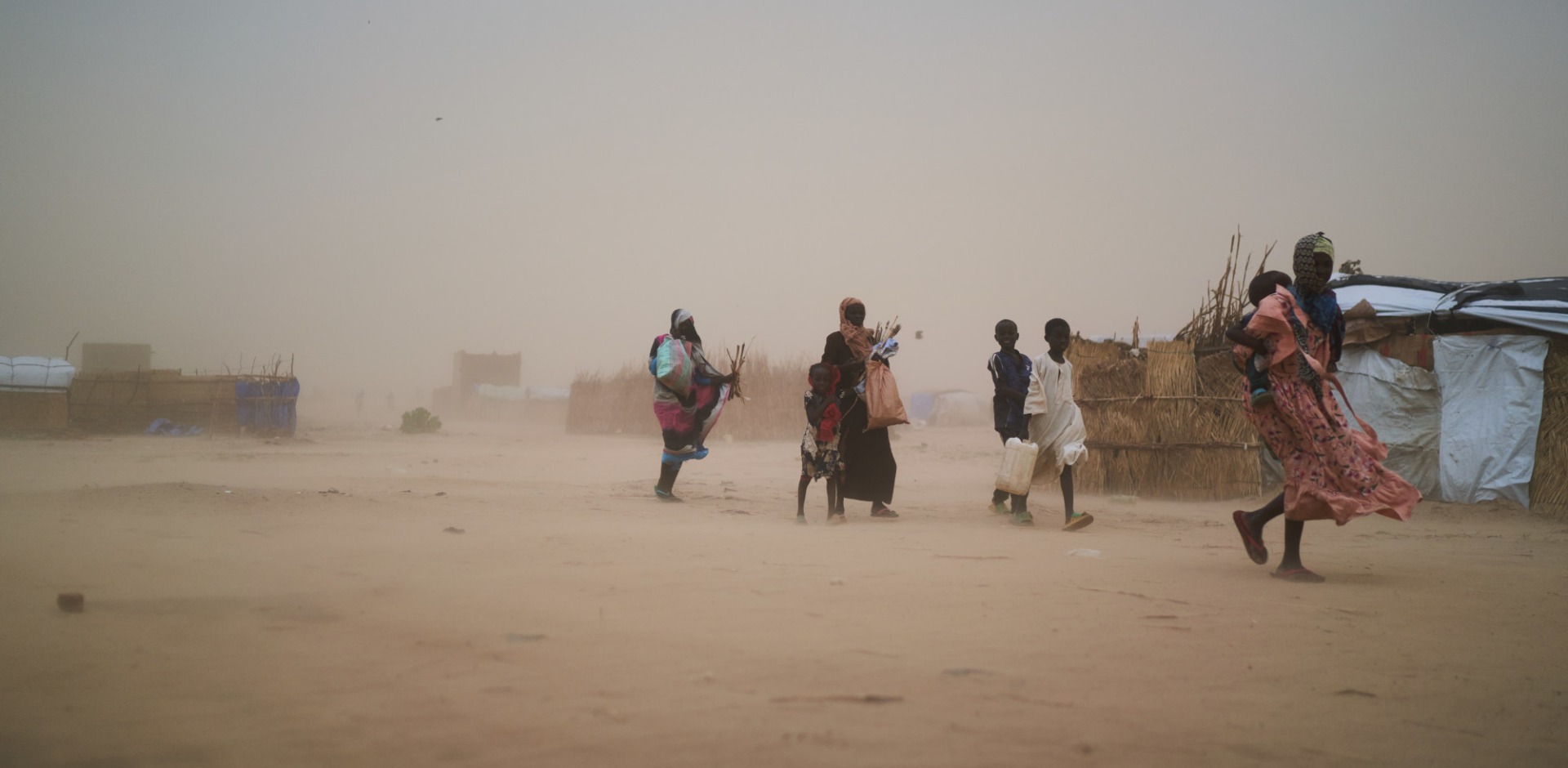
FAMINE IN SUDAN
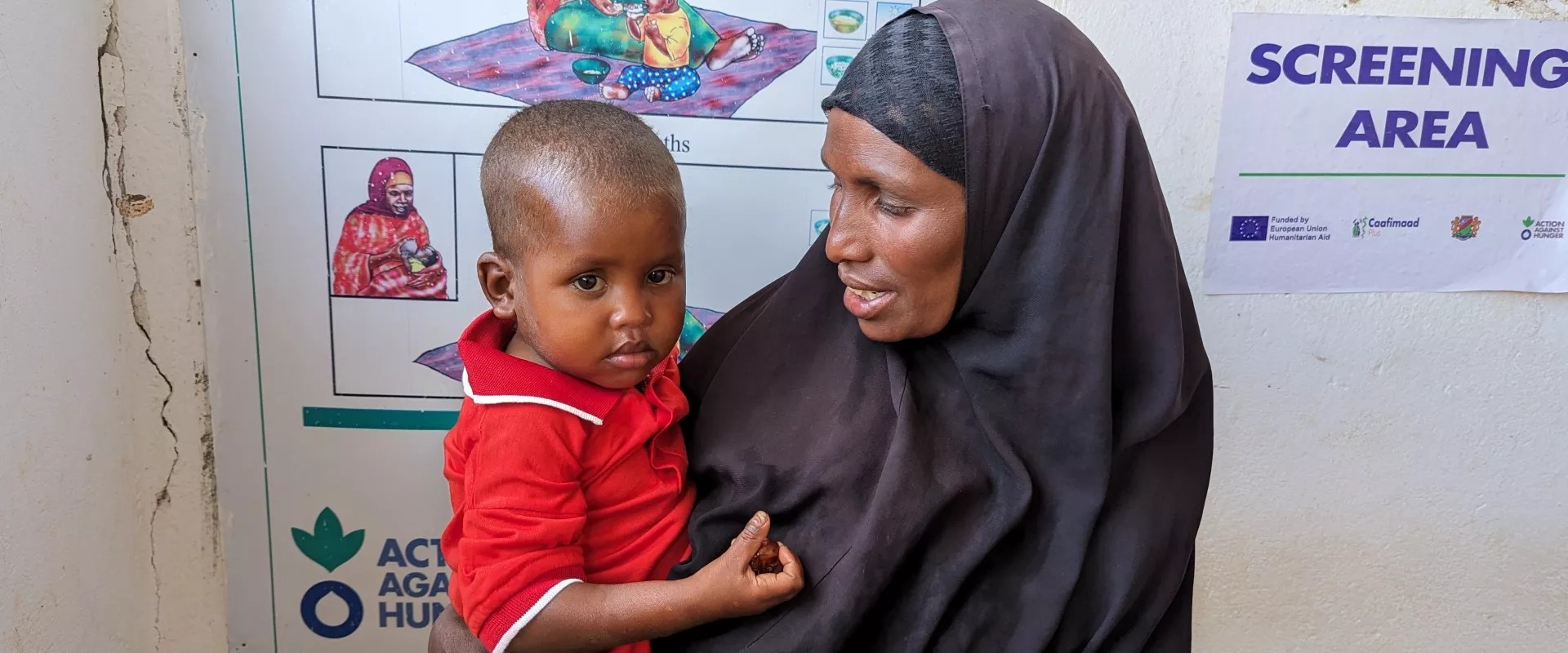
Somalia is facing one of its worst humanitarian crises in decades. Last year alone, 43,000 Somalis died during the devastating drought that left families without access to clean water or enough food.
In Madhayta, a small village in Southwestern Somalia’s Bakool region, children like three-year-old Abdullahi are frequently found to be on the verge of severe malnutrition. In these remote places, most families lack access to healthcare, sufficient food and water supplies, nutritional support, and functioning water systems. When Abdullahi started showing signs of malnutrition, his family fled to the nearby city of Baidoa in search of a better life.
Displacement is far too common for families in Somalia. In only a few months—between January and May—more than one million people were displaced from their homes and forced to trek miles in search of safety and security. Families like Abdullahi’s often find shelter in displacement camps, which are often overcrowded and prone to infectious disease outbreaks.
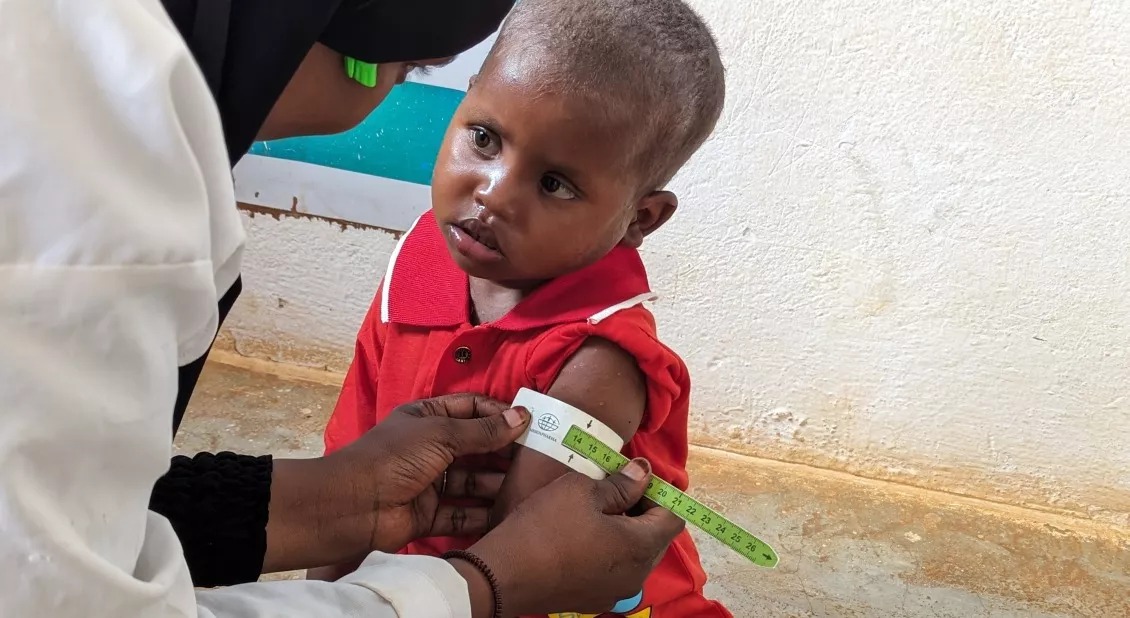
Shortly after Abdullahi settled into the Warhinshinshila displacement camp, he fell very ill. He developed a high fever and began vomiting. His body swelled and he lost his appetite. His mother, Amina Adan Maalim, feared that he was on the brink of death. Overcome with despair, she sought help and found a network of Action Against Hunger health workers that were able to provide her with lifesaving resources.
Our mobile health teams, which visit displacement camps like Warhinshinhsila on a weekly basis, provide essential healthcare services to children like Abdullahi. These mobile teams provide immediate, emergency treatment to those in critical condition.
After assessing Abdullahi’s condition, health workers referred him to the nearby Bayhaaw Stabilization Center, a facility dedicated to treating severely malnourished children with complications. Upon arrival, health workers described Abdullahi as “bedridden and motionless.” They immediately began treatment, putting a tube through his nose to ensure that he received nutrition—as well as the antibiotics and medications they prescribed to treat infections.
When families come to healthcare centers for inpatient care, they often must put their lives at home on hold. Many worry about stepping away from their livelihoods or other children and elder family members. To ensure that Abdullahi’s mother received enough support, Action Against Hunger provided her with three meals a day and a comfortable place to stay. Amina, who made the journey with Abdullahi’s younger sibling, her two-month-old baby, was also given educational resources on breastfeeding and newborn nutrition. This gave Amina more resources to care for the baby, Abdullahi, and her four other children at home.
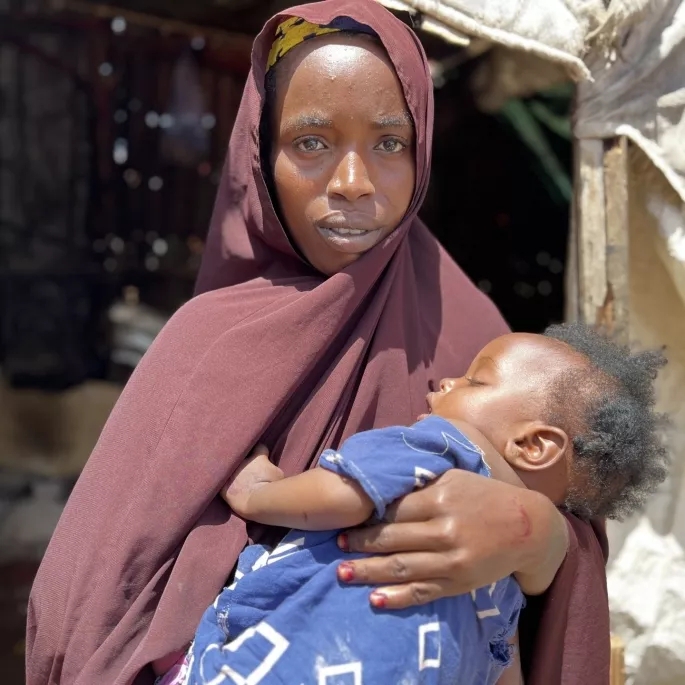
Somalia is on the brink of famine as more than six million people face acute food insecurity. Our team is on the ground providing nutritional support and administering lifesaving treatment.
Abdullahi made remarkable progress in only three short weeks at the health center. His mother rejoiced as she watched his swelling decrease and his face regain its glow and fullness. Not only did his appetite improve, but he also began to interact with other children at the facility’s child-friendly space.
Soon, Abdullahi and his family will transition to an outpatient therapeutic program. He will be given targeted supplementary feeding, marking a critical step toward full recovery from malnutrition.
Despite dire challenges, Amina persevered to bring her son to safety. Her unwavering resolve is inspiring, as are so many Somali mothers just like her, who must make difficult choices every day to secure a future for their children. As drought continues to threaten the lives and livelihoods of Somalis, Action Against Hunger will continue working with community members like Amina to build a better life.
Amina has taken up farming and cultivates maize on a plot near Baidoa. Successful harvests allow Amina to feed her family and continue protecting them from harm.
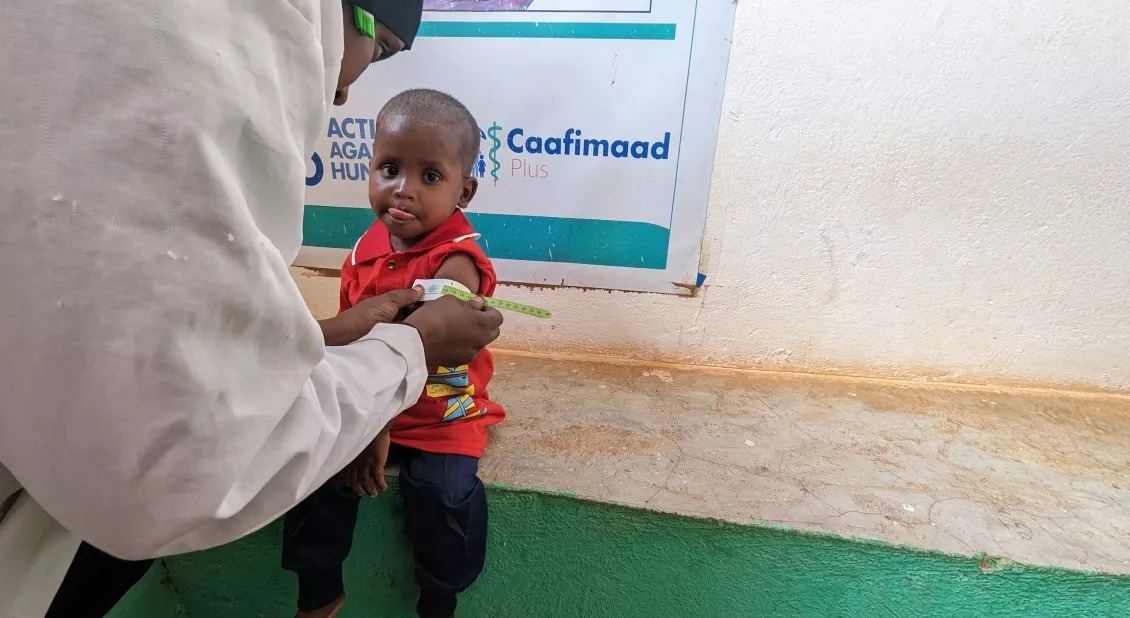
In July and August 2023, the Bayhaaw Stabilization Center provided lifesaving treatment for 345 children suffering from severe malnutrition. Hundreds more children likely faced life-threatening hunger yet were not able to reach the Center. In fact, this spring, nearly 100 fewer children were treated this year than the year prior. This decrease in admissions is due to the uptick of climate shocks and conflict in the region. Dangerous droughts and imminent violence prevent families from traveling safely to the Center. Many families may be in desperate need of assistance with little ability to access our teams.
Across Somalia and around the world, Action Against Hunger is addressing both the immediate and underlying causes of malnutrition. Our teams provide a vital lifeline for countless families who face unimaginable challenges.
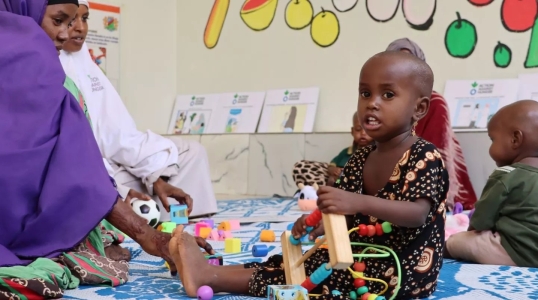
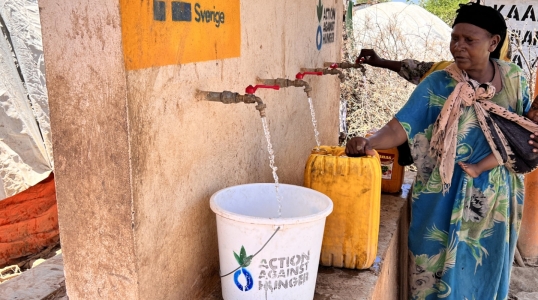
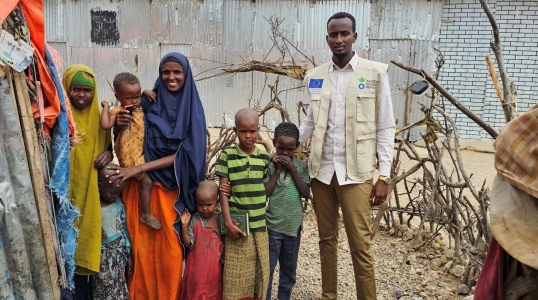
Join our community of supporters passionate about ending world hunger.